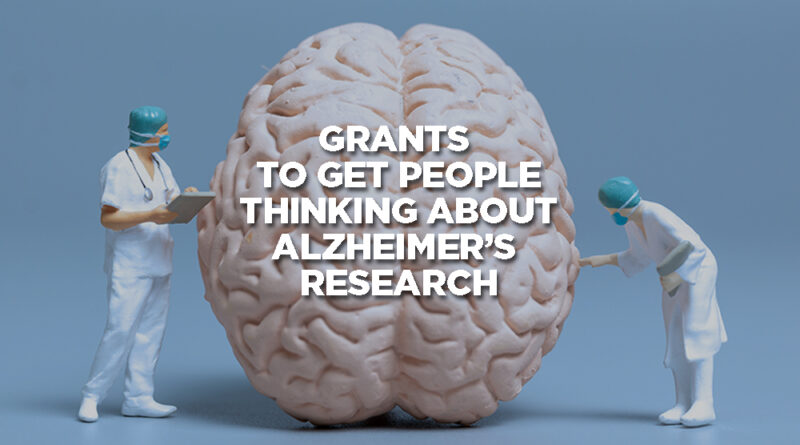Five Grants in Honor of World Alzheimer’s Day
Sept. 21 marks World Alzheimer’s Day, which focuses on bringing awareness to the disorder and supporting efforts to treat the disease.
Alzheimer’s Disease is a progressive type of dementia that affects one’s memory and worsens over time. According to the Alzheimer’s Association, the disease makes up 60-80 percent of dementia cases. Although, as of now, there is no cure.
Centers for Disease Control and Prevention notes that approximately 5.8 million Americans were living with the disease in 2020. However, the organization predicts that the number will nearly triple to 14 million people by 2060.
COVID-19 has also had a major impact on people facing the disease. According to the Alzheimer’s Association, deaths as a result of the disease or other forms of dementia have increased 16 percent since the start of the pandemic.
Symptoms of Alzheimer’s are serious and can include:
- Disorientation
- Mood and behavior changes
- Deepening confusion about events
- Disassociation from time and place
- Unfounded suspicions about family, friends and professional caregivers
- More serious memory loss and behavior changes
- Difficulty speaking, swallowing and walking
Overall, it is crucial to provide funding for this disease to expand and improve treatment options for patients suffering from it. This funding will also help in efforts to one day find a cure. GrantWatch has several grants to support research for this disease, as well as many others in its research category. In addition, GrantWatch offers a category specifically for aging and senior citizens. Here are five of the grants available on GrantWatch currently that focus on Alzheimer’s.
Five Grants to Help Treat Alzheimer’s
- Grants to U.S., Canada, and International clinicians and researchers based at nonprofits, for-profits, IHEs, and medical centers for research related to Alzheimer’s disease and dementia.
- Funding and fellowships to U.S., Canada, and International researchers at nonprofit organizations and institutions for projects that explore and increase the understanding of Alzheimer’s disease.
- There are grants to U.S. institutions and organizations to advance patient education. Funding is to provide educational activities to patients and caregivers. At this time, consideration will be go to requests on the subject of Alzheimer’s Disease.
- Grants and in-kind support to U.S., Canada, and International scholars and clinicians working in IHEs, nonprofits, businesses, and medical centers for research and development activities related to cognitive disease.
- Additionally, there is funding to Saskatchewan organizations and researchers for research projects that address health needs throughout the province. Focus areas include chronic diseases in Indigenous communities and Alzheimer’s Disease and other dementias.

